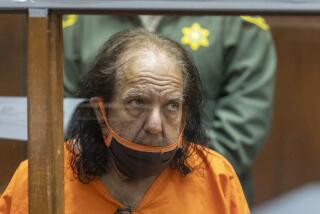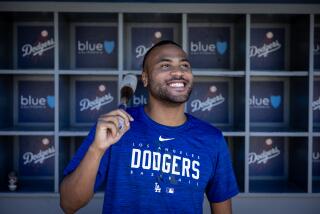Crusader Rabbit
You could be my dad.”
Jeremy stood, waist-deep in the dumpster, knee-deep in garbage, arms slimed to the elbows from burrowing, and dropped three beer cans to the buckled asphalt.
Raglan lined them up, pop-tops down, and crushed them to crinkled discs under his tattered Nike, then added them to the half-full gunnysack. Finally, he straightened and studied the boy in the dumpster. It wasn’t the first time. “Yeah. I could be.”
Jeremy made no move to climb out, even though the stink seemed to surround him like a bronze-green cloud, wavering upward like the heat-ghosts from other dumpster lids along the narrow alley. The boy wore only ragged jeans, the big Airwalks on his bare feet buried somewhere below, and his wiry, dusk-colored body glistened with sweat.
Not for the first time, Raglan thought that Jeremy was a beautiful kid, 13, small muscles standing out under tight skin, big hands and feet like puppy paws and hair like an ebony dandelion puff. A ring glinted gold and fierce in his left ear, and a red bandanna, sodden with sweat, hung loosely around his neck. His eyes were bright obsidian but closed now, the bruise-like marks beneath them were fading, and his teeth flashed strong and white as he panted.
Raglan could have been a larger copy of the boy, twice his age but looking it only in size, and without the earring. There was an old knife slash on his chest; a deep one, with a high ridge of a scar.
The Oakland morning fog had burned off hours before, leaving the alley to bake in tar-and-rot smell, yet Raglan neither panted nor sweated. There were three more dumpsters to check out, and the recycle place across town would be closing soon, but Raglan asked, “Want a smoke?”
Jeremy watched through lowered lashes as Raglan’s eyes changed, not so much softening as going light-years away. Jeremy hesitated, long fingers clenching and unclenching on the dumpster’s rusty rim. “Yeah . . . no. I think it’s time.”
His movements were stiff and awkward as he tried to climb out, garbage sucking wetly at his feet. Raglan took the boy, slippery as a seal, under the arms and lifted him over the edge. Together, they walked back to the truck.
It was an old Chevy, three-quarter ton, as rusted and battered as the dumpsters. There were splintery plywood sideboards above the bed. The cab was crammed with things, as self-contained as a Land Rover on safari, or a space capsule. Even after two months it still surprised Jeremy sometimes what Raglan could pull out from beneath the seat or the piled mess on the dash--toilet paper, comic books or a .45 automatic.
Raglan emptied the gunnysack into an almost full garbage can in the bed, then leaned against the rear fender and started to roll a cigarette from Bugler tobacco while Jeremy opened the driver’s door and got a scuffed Band-Aid box from under the floor mat. The boy’s hands shook slightly. He tried not to hurry as he spread his things on the running board: a tiny rock bottle, with gray-brown powder in the bottom instead of crack crystals; a puff of cotton; candle stub; flame-tarnished spoon, and needle, its point protected by a chunk of Styrofoam. On the cab floor, by the shift lever, was a gallon plastic jug from Pay Less Drugs that used to hold “fresh spring water from clear mountain streams.” Raglan filled it from gas station hoses, and the water always tasted like rubber. Jeremy got it out, too.
Raglan finished making his cigarette, fired it with a Bic, handed the lighter to the boy, then began to roll another as he smoked. His eyes were still far away.
Jeremy looked up as he worked. “I know your old name. I seen it on your driver license. Why’s your street name Raglan?”
Smoke drifted from Raglan’s nostrils. He came close to smiling. “My dad started callin’ me that. It’s s’posed to be from some old-time cartoon, when he was just a little kid. ‘Crusader Rabbit.’ I never seen it. The rabbit’s friend was a tiger. Raglan T. Tiger. Maybe they was somethin’ like the Ninja Turtles, had adventures. It was a long time ago.”
“Oh.” Jeremy sat on the running board, back against the side of the bed. He wrapped a strip of inner tube around his arm. It was hard to get it right, one-handed. He looked up again. “Um . . .”
“Yeah.” Raglan knelt and pulled the strip tighter. His eyes were distant again, neither watching nor looking away as the boy put the needle in. “You got good veins. Your muscles make ‘em stand out.”
The boy’s eyes moved from the needle, lowering, and his chest hardened a little. “I do got some muscles, huh?”
“Yeah. But don’t let ‘em go to your head.”
Jeremy chewed his lip. “I used to miss ‘em . . . my veins, I mean. A long time ago. An’ sometimes I poked right through.”
“Yeah. I done that too. A long time ago.”
The boy’s slender body tensed a moment, then he relaxed back against the truck with a sigh, eyes closed. But almost immediately they opened again, searching out Raglan’s. “It only makes me normal now.”
Raglan nodded, handing Jeremy the other cigarette and firing the lighter. “Yeah. On two a day; that’s all.”
Jeremy pulled in smoke, holding it a long time, then breathing out rings. “Next week it’s only gonna be one.” He held Raglan’s eyes. “It’s gonna hurt some more, huh?”
“Yeah.”
“Um, when do you stop wanting it?”
Raglan stood, snagging the jug and taking a few swallows. Traffic rumbled past the alley, exhaust fumes drifting from the street. Flies buzzed in clouds over the dumpsters, and a rat scuttled past in no particular hurry. “When you decide there’s somethin’ else, an’ you want it more.”
Jeremy began to put his things away. The little bottle was empty. It would take most of today’s cans to score another for tomorrow. “You gotta be my dad, man. Why else would you give a shit?”
“I don’t know.” Raglan could have added that, when he’d first found Jeremy, the boy wouldn’t have lived another week. But dudes Jeremy’s age would think that was bad--almost something to brag about. Why? Who in hell knew. Raglan didn’t remember much about being 13, but he remembered that.
Raglan dropped his cigarette on the pavement, slipped the sack off the sideboard and started up toward the other dumpsters. There really wasn’t a lot of use in checking them. This was the worst part of town, and poor people’s garbage was pitiful, everything already sucked bone-bare, rusted or rotted or beaten beyond redemption. And nothing left of any value at all. Jeremy followed, moving like a kid once more.
A few paces ahead, Raglan flipped back a lid so that it clanged against the sooty brick wall. Flies scattered in swarms. For a moment he just looked at what lay atop the trash. He’d seen this before, but it was one thing he’d never gotten used to. His hand clamped on Jeremy’s shoulder, holding the boy back. But Jeremy saw the baby anyway.
“Oh . . . God.” It came out a sigh. Jeremy pressed close to Raglan, and Raglan’s arm went around him. “I heard about them. . . . Other dudes talk sometimes. But I never figured . . . for real.”
“For real.”
Jeremy’s eyes found Raglan’s again. “Why?”
But Raglan’s eyes were distant once more, seeing but not seeing the tiny honey-brown body, the perfect little fingers and toes, a beautiful child. “I don’t know.”
Jeremy swallowed once. “What should we do?”
Raglan’s eyes turned hard. He was thinking of cops and their questions, then of a call from a pay phone. There was one at the recycle place; that would be easiest. Time was running short. The Chevy’s tank was almost full, but there was food to buy, and Jeremy’s need, and the cans were the only money. Still he said, “What do you want to do?”
Jeremy looked back at the baby. Automatically, he waved flies away. “What do they . . . do with ‘em?” He turned to Raglan. “I mean, is there some kinda little coffin? An’ flowers?”
Raglan took his hand off the boy’s shoulder. “They burn ‘em.”
“No!”
“The ones they find. Sometimes they just go to the dump an’ the bulldozers bury ‘em. You been to the dump.”
Jeremy’s hands almost went to his ears, then his fists clenched. “No, goddamn you! Shut up, sucker!” A hand dove for the pocket where he carried the blade.
The boy’s chest heaved, hand poised. Raglan was quiet a minute. Finally, his hand went to Jeremy’s shoulder again. “OK.” Raglan walked back to the truck while Jeremy watched from beside the dumpster, waving away the flies.
Raglan stopped at the tailgate. There was an old canvas tarp folded behind the cab. On foggy or rainy nights he spread it over the sideboards to make a roof. A piece of that would do.
Salty sweat burned Raglan’s eyes, and he blinked in the sunlight stabbing down between the buildings. The canvas was oily and stank. Going around to the cab, he pulled one of his two black T-shirts from behind the seat.
The old Chevy was a city truck, an inner-city truck, that made its moves in blocks, not miles. It burned oil, the radiator leaked, and its tires were almost bald. There were two bullet holes in the right front fender. But it managed to maintain a grudging 55, rattling first across the Bay Bridge into San Francisco and then over the Golden Gate, headed north. It had a radio-tape deck, ancient and minus knobs--stereos without knobs almost never got stolen, though who in the hell knew why--but Jeremy didn’t turn it on or play his favorite tape. He stayed silent, rolling cigarettes for Raglan and himself and trying not to think about the little bundle in back. Even when they turned off the freeway near Novato, onto a narrow two-lane road leading west, the boy just stared unseeing through the grimy windshield, eyes a lot like Raglan’s, even though the open countryside of gentle green hills spread out all around them.
It was early evening, with the sunlight slanting gold, as Raglan slowed the truck and searched the roadside ahead. The air was fresh and clean, scented with things that lived and grew, and tasting of the ocean somewhere close by. There was a dirt road, no more than twin tracks with a strip of yellow dandelions between. It led away toward more low hills, through fields of tall grass and flowers of wild mustard. Raglan swung the truck off the pavement, and they moved slowly to the hills in third gear. Jeremy watched the fields rolling by, then turned to Raglan. “You ever been here before?”
“A long time ago.”
“I never knew there was places like this, pretty, an’ without no people an’ cars an’ shit. For real.”
“Yeah. For real.”
The road entered a small cleft between the hills, and a tiny stream ran down to meet it, sparkling. For a while the road followed the splashing water, then turned and wound upward, and the truck took the grade growling in second. The road grew more faint as they climbed, then finally ended at the top of the hill. Raglan cut the engine. A hundred feet ahead, a cliff dropped sheer to the sea, which boomed and echoed on rocks somewhere below.
Jeremy seemed to forget why they’d come. He ran to the cliff’s edge as any boy might, as close as possible, then just stood looking out across the water.
Raglan leaned on the hood and watched.
The boy spread his arms wide for a moment, head thrown back, then looked down at his dirty jeans and shoes. Raglan watched a moment more as the boy stripped to stand naked before the sea and the sun. Then Raglan went to the tailgate. There was an old square-nosed cement shovel and an Army trenching tool he used when he cleaned up yards.
Jeremy joined him, solemn, though his eyes kept some sea sparkle. Raglan said nothing, though he smiled a moment before taking the shovel in one hand and the little bundle in the crook of his arm. Jeremy put his jeans back on and followed with the trenching tool.
The ground rose again nearby to a point that looked out over the sea. They climbed to the top. Raglan cut the sweet-smelling sod into blocks with his shovel, and the earth-scent filled the air. Then they both dug. The sun was almost gone when they finished. And though the air was cooling, Jeremy was sheened in sweat once more. But he picked some of the wild mustard and dandelion flowers and laid them on the little mound.
Far out to sea, the sun grew huge and ruddy-red as it sank. Raglan made a fire near the truck, and Jeremy unrolled the blankets, surprised again when Raglan produced two dusty cans of Campbell’s soup and a pint of Jack Daniels from somewhere in the cab. A little later, when it was dark and still and the food was warm inside them, they sat side-by-side near the little fire, smoking and sipping the whiskey. The sea boomed softly below.
“Is this campin’ out?” asked Jeremy.
“Yeah. I guess it is.”
Jeremy passed the bottle back to Raglan, then glanced toward the truck. It seemed small all by itself on a hilltop. “We don’t got enough gas to get back, huh?”
Raglan gazed into the flames. “Uh-uh. Maybe there’s someplace around here that buys cans.”
Jeremy stared at the fire, too. “It’s gonna hurt a lot, huh?”
“Yeah.”
“I don’t care. I’m glad we came.” Jeremy moved close to Raglan. “So, you never seen that Crusader Rabbit, don’t know what he looked like?”
“I think he carried a sword an’ fought dragons.”
“You are my dad, huh?”
Raglan put his arm around the boy and pulled him closer, tears from a long time ago glistening in the firelight. “Yeah.”


